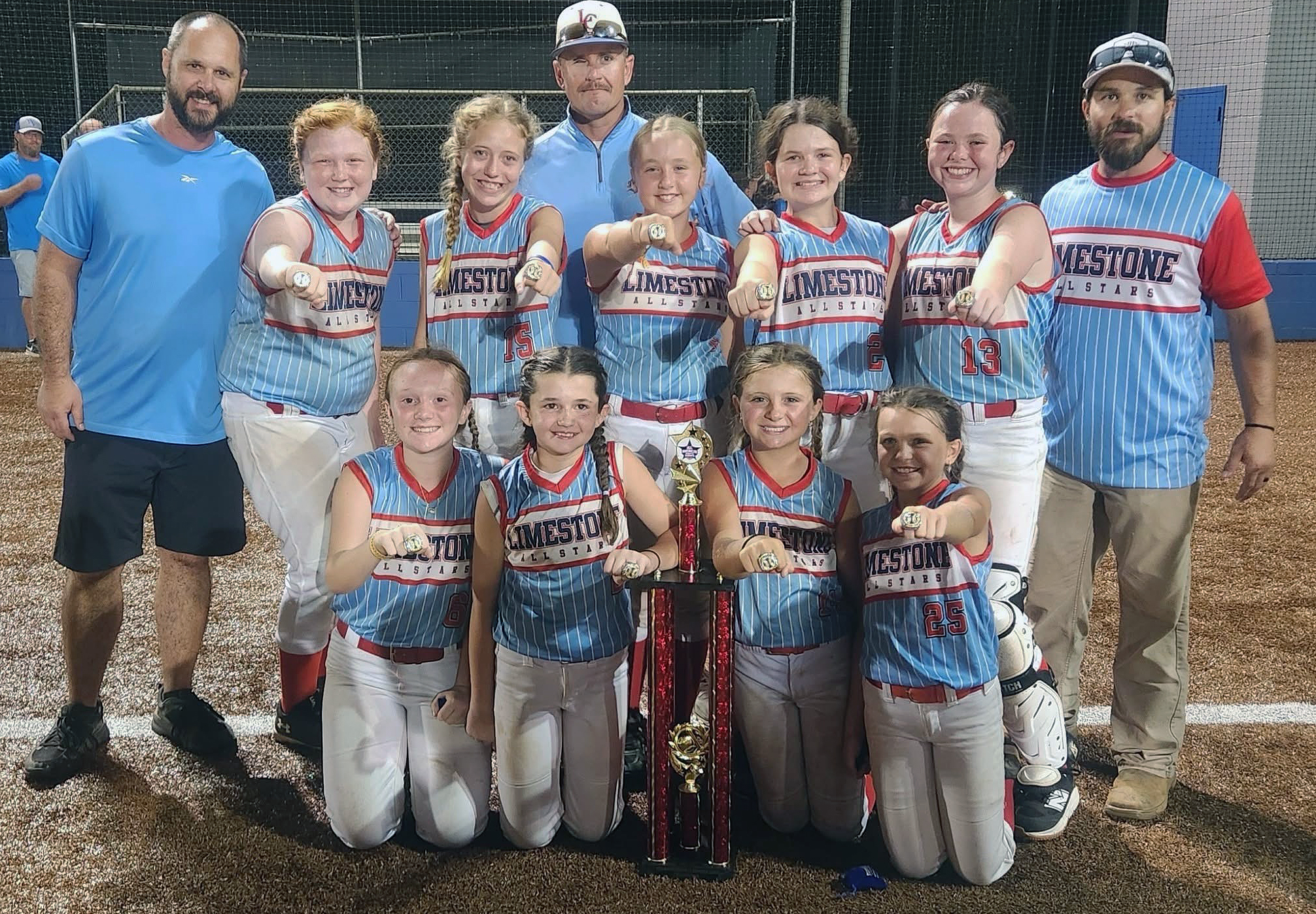UPDATED: GOP candidate denied ballot access
Published 6:00 am Wednesday, December 18, 2019

- LaDon Townsend, independent candidate in the Limestone County District 4 Commissioner race.
A Republican candidate for the District 4 seat on the Limestone County Commission has been denied access to the ballot in the March 3 Republican primary.
LaDon Townsend, a Limestone County native and farmer, recently had his candidacy challenged by Eric Redd, who ran as a Republican for Limestone County Sheriff in 2014 and 2018.
Trending
In a letter to Alabama Republican Party Chairwoman Terry Lathan, Redd said Limestone County Sheriff Mike Blakely and former Limestone County District 4 Commissioner Bill Daws, both Democrats, were supporting Townsend. Redd said both men have signs supporting Townsend in their yards. He also said Townsend used his Facebook campaign account to support Blakely, who is facing a 13-count criminal indictment.
“As the 2018 Republican nominee for Limestone County sheriff, I find this support inappropriate for a Republican candidate,” says Redd’s letter to Lathan. “Though LaDon Townsend has a right to support anyone he chooses, he does not have the right to use the Republican Party ticket to do so.”
Townsend, however, believes the leadership within the Limestone County Republican Executive Committee supported his removal from the ballot in order to help his rival, incumbent District 4 Commissioner Ben Harrison. With Townsend off the ballot, Harrison has no competition in the primary.
Redd’s challenge was submitted Wednesday, Dec. 11. Townsend’s hearing before the Alabama Republican Executive Committee was Monday night. His deadline to file an appeal with the state is Wednesday.
Townsend questioned why the Limestone County Republican Executive Committee waited until two days before the challenge was filed to cash his qualifying check. Townsend said the committee cashed the qualifying check from Steve Turner, incumbent candidate for County Commission District 2, on Sept. 27, just three days after Turner wrote it. Turner on Tuesday corroborated Townsend’s claim.
“It was a witch hunt,” Townsend said Tuesday. “Everything was based on timing.”
Trending
Noah Wahl, chairman of the Limestone County Republican Executive Committee, said there was no conspiracy related to when Townsend’s check was cashed.
“I’m not sure why that is of relevance,” he said. “Our treasurer has had some health issues and that delayed the deposit of several candidate’s checks.”
Townsend said he’s never met Eric Redd, though they live not far from each other. When asked if he had any idea why Redd would file the ballot challenge, Townsend said he felt Redd was trying to ingratiate himself with Noah Wahl, chairman of the Limestone County Republican Executive Committee, and John Wahl, who runs a political consulting and polling firm, WT&S Consulting. John Wahl was also elected senior vice-chairman of the Alabama Republican Party in March.
Both men are residents of District 4.
As senior vice-chairman in the Alabama Republican Party, John Wahl is in the second highest-ranked leadership position and is directly under the state chairman. The senior vice-chairman’s duties include taking over for the chairman should the need arise and serving on the state steering committee, the main governing body of the Alabama Republican Party.
The case against Townsend
In addition to his support for Blakely, Redd’s letter claims Townsend was overheard saying the only reason Bill Daws lost his commission seat to Harrison is because Daws ran as a Democrat and not a Republican. Redd said Townsend claimed that’s why he was running as a Republican.
“I do not believe Mr. Townsend is a loyal Republican according to the standards set forth by the ALGOP, and I humbly ask that you do not approve his qualifying forms,” Redd said in his closing line.
Should Townsend have asked Blakely and Daws to withdraw their support of him until after the primary? Townsend said he wouldn’t have done that.
“I want to support everybody,” Townsend said, noting both Daws and Blakely are residents of District 4. “Ben Harrison can’t say he’s serving Mike Blakely, and he can’t say he’s serving Bill Daws. (Harrison’s) supposed to be unbiased.”
On Dec. 12, Townsend was contacted by Harold Sachs, chief of staff for the Alabama GOP, about the challenge. Townsend was also told he had four days to prepare for his hearing, a phone conference set for Monday evening.
“I had seven minutes to defend myself,” Townsend said.
After Townsend laid out his reasons for being allowed to run, he said he answered questions for several minutes. He was then told to wait 45 minutes on a call announcing the party’s decision, which was a “no.”
He said when he first decided to run for commissioner, he met with Harrison and told him the decision wasn’t personal. Townsend on Tuesday questioned why Harrison didn’t intervene and simply let the best man win.
“I don’t think I could have stopped it,” Harrison said. “I’ve always stayed focused on my own campaign and the issues facing Limestone County. I don’t get involved in other people’s campaigns and I have not even seen the information from the state party.”
Response from the challenger
Redd, in a written response, again reiterated his concern over Townsend’s support for both Blakely and Daws. He said Townsend’s campaign “has developed a clear working relationship with the Democrat party of Alabama,” which Redd called unacceptable for any Republican candidate.
Redd pointed out Townsend had never voted in a Republican primary election or runoff election. Townsend confirmed that, saying he was out of town or otherwise unavailable.
Redd also said Townsend has no political affiliation on his political signs, campaign material or social media sites. He added a “true Republican” is one who is proud to be a Republican and does not try to hide his political affiliation.
“It also makes it easier for them to run as an Independent or Democrat should they get caught by the Republican Party,” Redd’s statement said. “These individuals often use this tactic to make themselves look like a victim, while at the same time they show their true colors by attacking the Republican Party. This is a classic liberal Democratic strategy. It’s dirty politics, and Limestone County deserves better.”
Finally, in referencing Townsend’s relationship with Daws and Blakely, Redd said it is “extremely inappropriate” for a Democrat to influence the outcome of a Republican primary.
“I was trained in Intel collection and anti-insurgency tactics while serving in the U.S. Army so this is exactly the type of situation that catches my attention,” Redd said in his statement. “It is clear, Democrat leaders are trying to influence the Republican primary. The people of Limestone County have a right to a fair primary election, and that right should not be taken away by letting Democrats run in the Republican Primary.”
Response from the LCREC
In a written statement, Noah Wahl, chairman of the Limestone County Executive Republican Committee, said it is not a problem having friends who are Democrats. He added it is a “grave concern,” however, to have Democratic leadership involvement in a Republican primary.
Supporting documentation from Redd noted a relationship between Townsend and Greg Poss, a Democrat who serves as campaigns coordinator for the 5th Congressional District and who also worked on the campaign of U.S. Sen. Doug Jones. A screenshot sent to the state GOP by Redd shows a brief interaction between Poss and Lisa Townsend, who sent him an invite to connect on Facebook.
Lisa Townsend said Poss had sent her numerous friend requests, but she never received them. She didn’t understand why her reaching out to Poss to say “here I am” was used against her husband.
Wahl said he didn’t know all the details of the challenge because it was handled at the state level. He believes it was handled in a “proper way and in accordance with ALGOP procedure.”
He added ballot challenges aren’t pleasant, but a necessary part of the political process.
“I know the Republican Party feels a great duty to the voters to make sure Republican candidates represent the values of the Party,” he said. “The process can be painful, and I truly feel for all persons involved. Ballot challenges happen every election cycle and at every level all across the state. ALGOP has guidelines to handle ballot challenges, and I have been assured that Townsend’s challenge was handled no different from the others they handled.”
Wahl said Townsend’s situation was not unique, but he was “disappointed” there were some who chose to attack the county and state parties over the challenge.
“The county party deferred this issue to the State Republican Party so that it would be handled in an impartial setting,” Wahl said. “I’m saddened and disappointed to have people attacking and saying untrue things about the Limestone County Republican Party, but not surprised that it is happening.”
Not the first time
Townsend is the third Republican candidate to be kept off the ballot in the last four years. Former District Attorney Kristi Valls switched from the Democratic to the Republican party shortly after being defeated by Republican Brian Jones in the 2010 Republican sweep. In August 2014, Valls was accepted as a member of the Limestone County Republican Executive Committee, the governing body of the Limestone GOP.
She announced in November 2015 she would challenge incumbent Jones in the March 1, 2016, primary election, a decision that created a stir among some GOP members. A month later, an unknown member of the LCREC challenged Valls’ placement on the GOP ballot for the DA race, arguing, among other things, that she was not a true Republican and that before she had been admitted to the LCREC, she had promised not to run against Jones.
Last year, Jason White, an openly gay Republican candidate for Limestone County sheriff, was denied ballot access by the LCREC because he supported a Libertarian presidential candidate over Donald Trump. White, who would have faced Redd in the primary, said he believes his sexual orientation played a role in being kept off the ballot.
White previously ran for sheriff as a Republican in 2002.
On Tuesday, Townsend didn’t know what his next move would be. If he runs as an independent in the November 2020 election, he would need to collect the signatures of 194 voters by Tuesday, March 3. That number represents 3% of District 4 voters who voted in the 2018 gubernatorial election.
“I’m still weighing my options,” he said.





